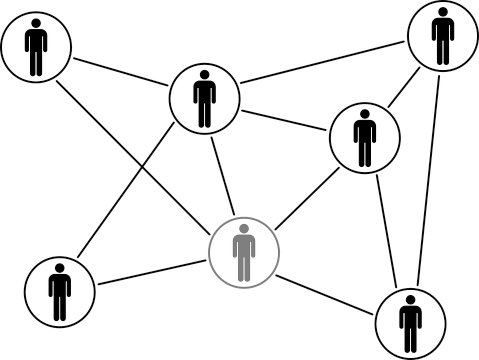Call for chapters on Springer edited book
Macrotask Crowdsourcing: Engaging the Crowds to Address Complex Problems
Crowdsourcing is an emerging paradigm that promises to transform several domains: design and creative work, science and innovation, arts and media, etc. Crowdsourcing reflects the close-knit interplay between the latest computing technologies, the rapidly changing work model of the 21st century, and the very nature of people. This interplay makes for an exciting but at the same time challenging new field to investigate under the lens of a diverse set of disciplines, ranging from the technical to the social and from the theoretical to the applied.
Early research has focused on an aspect of crowdsourcing known as micro-tasking. Such tasks are usually simple ones (like image annotations) that anyone could perform. An emerging area is how can crowdsourcing address problems that go beyond simple tasks towards more complex ones that require collaboration and creativity. In contrast to micro-task crowdsourcing, this book wishes to investigate macro-task crowdsourcing and its aspects in HCI.
The book will be published in the Springer Human-Computer Interaction Series: http://www.springer.com/series/6033
We invite HCI researchers and practitioners to contribute to the following suggested (but not limited) topics:
Early research has focused on an aspect of crowdsourcing known as micro-tasking. Such tasks are usually simple ones (like image annotations) that anyone could perform. An emerging area is how can crowdsourcing address problems that go beyond simple tasks towards more complex ones that require collaboration and creativity. In contrast to micro-task crowdsourcing, this book wishes to investigate macro-task crowdsourcing and its aspects in HCI.
The book will be published in the Springer Human-Computer Interaction Series: http://www.springer.com/series/6033
We invite HCI researchers and practitioners to contribute to the following suggested (but not limited) topics:
- Collaboration and coordination: How to enable crowd collaboration for complex work that goes beyond simple micro tasks?
- Empirical studies in the collaboration and/or coordination between requesters and workers
- Situated and location-based macro-tasking
- Task-to-task and/or task-to-worker matching and/or handoffs
- Applications in HCI: Which complex tasks can be handled through crowdsourcing and how? E.g. in:
- Disaster response
- Product design
- Service design
- Science & Education
- Technical aspects: Which synergies of crowds and machines can allow the handling of complex macro-tasks?
- The role of AI in macro-tasking
- Intelligent UIs to support macro-tasking
- Worker and societal aspects: What are the implications of macro-task crowdsourcing for workers, policy makers, labour unions and citizens?
- Context in which macro-tasking takes place
- Demands and resources of crowdworkers
- Vision and/or opinion papers on complex macro-task work
Submitting your chapter
If you would like to contribute to this edited book please send a one page abstract (±500 words) of your chapter together with the authors' names and affiliations, and the email of the corresponding author to: v.j.khan@tue.nl. Submissions should be previously unpublished and should not be under consideration for publication elsewhere. The deadline for submission is 1 February 2018 but early submissions are encouraged.
Important Dates
- February 1, 2018: Submission of chapter abstracts
- March 1, 2018: Notification of accepted chapter abstracts
- October, 1 2018: Submission of full chapters
- November 8, 2018: Notifications and reviews back to the authors
- December 8, 2018: Submission of revised full chapters
- January 15, 2019: Final notification of acceptance to the authors
- January 30, 2019: Camera-ready due
Questions?
Editorial team
Javed Khan (Eindhoven University of Technology)
Ioanna Lykourentzou (Utrecht University, Department of Information and Computing Sciences)
Konstantinos Papangelis (Xi’an Jiaotong-Liverpool University)
Panos Markopoulos (Eindhoven University of Technology)
Ioanna Lykourentzou (Utrecht University, Department of Information and Computing Sciences)
Konstantinos Papangelis (Xi’an Jiaotong-Liverpool University)
Panos Markopoulos (Eindhoven University of Technology)
